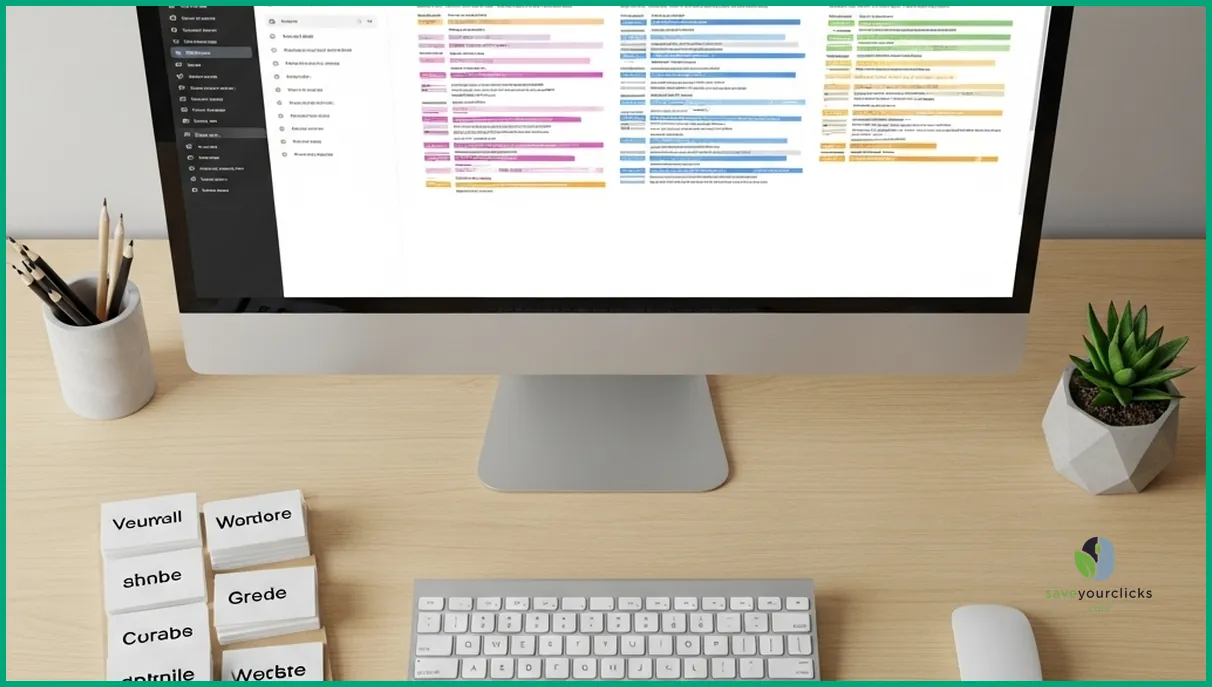Keyword clustering is the process of grouping similar keywords together to target multiple search intents with fewer, more effective pages. By organizing keywords into clusters, you can streamline your content strategy and improve SEO performance.
What Is Keyword Clustering?
Keyword clustering involves identifying groups of related search terms that share similar intent or topics. Instead of creating one page per keyword, you create content that targets a whole cluster, increasing your chances of ranking for multiple queries at once.
Why Is Keyword Clustering Important?
Search engines have become better at understanding context and intent. If your site contains several articles targeting near-identical keywords, you risk competing with yourself. Keyword clustering helps you:
- Increase topical authority by covering related queries together
- Reduce duplicate content and cannibalization
- Streamline internal linking opportunities
- Save content creation time by focusing on clusters, not just single keywords
Keyword Clusters vs. Topic Clusters
The terms “keyword cluster” and “topic cluster” are sometimes used interchangeably, but they are not identical. A keyword cluster is a set of closely related search terms (e.g., “keyword clustering,” “SEO keyword grouping,” “cluster SEO”). A topic cluster is a broader content strategy where one main page (pillar) links to related subpages.
| Aspect | Keyword Cluster | Topic Cluster |
|---|---|---|
| Definition | Similar keywords grouped by intent | Content structure with pillar and subpages |
| Purpose | Improve page targeting and rankings | Organize site content for authority |
| Scope | Narrow (search terms) | Broad (entire topic area) |
| Example | “keyword clustering,” “SEO clustering” | “SEO guide” as pillar, with “on-page SEO,” “link building” as subpages |
| Internal Linking | Within articles targeting clustered terms | Pillar links to cluster pages and vice versa |
How to Create Keyword Clusters: Step-by-Step
Step 1: Gather Your Keyword List
Start by collecting a comprehensive list of keywords relevant to your topic. Use keyword research tools or export data from Google Search Console. Focus on terms with search volume and clear intent.
Step 2: Identify Keyword Relationships
Look for keywords that share similar meanings or search intent. For example, “best keyword clustering tools” and “SEO keyword grouping software” likely belong together.
Step 3: Group Keywords into Clusters
Manually, you can group keywords by reviewing their SERPs and noting which pages rank for multiple terms. Automated keyword clustering tools, such as the one from saveyourclicks, use algorithms to cluster based on SERP similarity or semantic relationships.

Step 4: Map Content to Clusters
Assign each cluster to a specific page or article. Make sure each piece of content covers the main and secondary keywords in its group. This ensures comprehensive coverage and reduces overlap.
Step 5: Optimize and Monitor
Once your content is live, use rank tracker tools to monitor performance for each cluster. Adjust your strategy as you identify gaps or new opportunities.
Manual vs. Automated Keyword Clustering
Manual clustering involves reviewing keywords and SERPs by hand. This can work for small lists but quickly becomes impractical at scale. Automated keyword clustering tools use algorithms to group keywords based on SERP similarity, semantic analysis, or both. These tools save time and help uncover patterns you might miss manually.

Choosing the Right Keyword Clustering Tool
Not all keyword clustering tools use the same methods. Some rely on SERP overlap; others use natural language processing. Consider these factors when choosing a tool:
- Volume of keywords you need to cluster
- Accuracy and flexibility of grouping methods
- Integration with other SEO tools, such as keyword gap analysis
- Reporting and export options
- Support and documentation
Cluster SEO: Putting It All Together
Effective cluster SEO is about more than grouping keywords. It’s about mapping those groups to high-quality content, building logical internal links, and monitoring results over time. Tools like saveyourclicks can help automate the clustering process and support ongoing optimization.

Ready to Start Clustering?
If you want to streamline your cluster SEO process, try using a keyword clustering tool from saveyourclicks. You can also schedule a quick call to discuss your specific needs.
FAQs: Keyword Clustering
What is the main benefit of keyword clustering?
Keyword clustering helps you target multiple related queries with a single page, increasing your chances of ranking for more terms.
How do keyword clustering tools work?
Most keyword clustering tools analyze search engine results pages (SERPs) to group keywords with similar ranking results, or use semantic analysis to find related terms.
Should I cluster keywords manually or use software?
For small lists, manual clustering is possible. For larger projects, automated tools are more efficient and consistent.
What’s the difference between keyword and topic clusters?
Keyword clusters group similar search terms, while topic clusters structure content around a central pillar page and related subpages.
Which tools help with keyword clustering?
Tools like saveyourclicks, as well as other cluster SEO platforms, automate the grouping process and provide exportable results.
How do I know if my clusters are accurate?
Review the SERPs for each keyword in a cluster. If the same pages rank for most terms, your cluster is likely accurate.
Can clustering help with internal linking?
Yes, clustering reveals natural internal linking opportunities between related content pieces, improving site structure and user navigation.
How often should I update my keyword clusters?
Review clusters every few months or when launching new content, as search intent and SERPs can shift over time.
What if a keyword fits multiple clusters?
Prioritize the cluster that best matches its intent. Avoid targeting the same keyword with multiple pages to prevent cannibalization.
Methodology & Limitations
This article draws on best practices from SEO industry publications, expert interviews, and hands-on experience with keyword clustering tools. Guidance reflects typical approaches but may not fit every site or niche. Search engine algorithms and tool capabilities evolve, so always validate clusters with your own data. No proprietary or confidential data was used.
Take Your Next Step with Keyword Clustering
Start by reviewing your current keyword targets and testing a free keyword clustering tool. This will help you uncover new clusters, reduce overlap, and plan more effective content.



